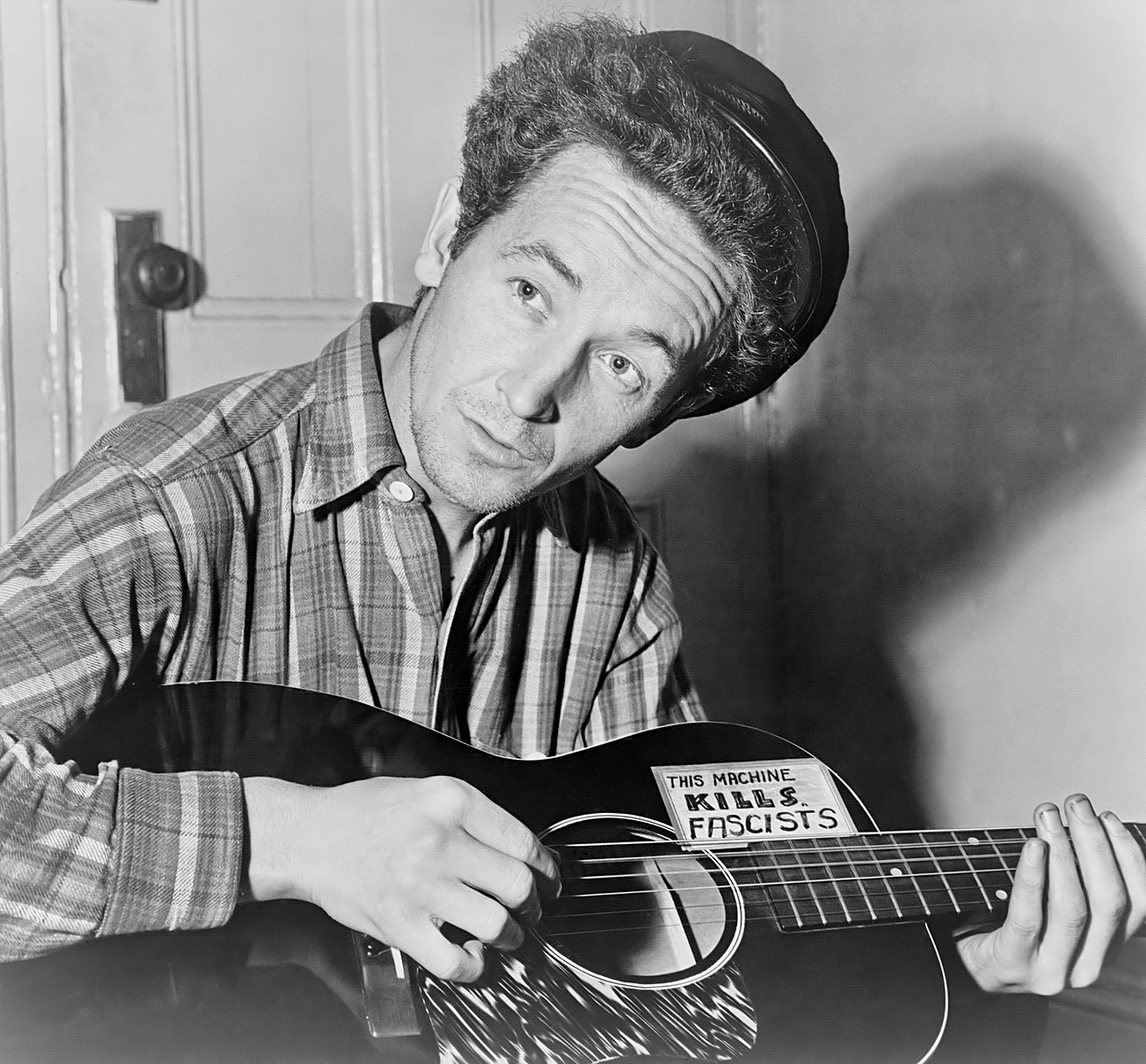The Voice of the Heartland
Thoughts About Woody Guthrie on His 110th Birthday

Woody Guthrie’s birthday — July 14 — has become an annual moment for remembering and celebrating his legendary life and legacy. In his native Oklahoma every year there’s a big Woody Birthday music festival; many smaller Woody songfests seem regularly to convene on what used to be Bastille Day.
I myself have been doing Woody birthday radio bashes for most of the 40 years my KCSB show “Culture of Protest” has been on the air. This year, fellow KCSB programmer, musician, and ethnomusicologist Hunter Gettelfinger, invited me to talk about Woody at a birthday party he was organizing down at Jim Connally’s Piano Kitchen. It was for me a timely invitation, because I’ve been thinking a lot about the meaning of Woody in the time of Trump.
Woody was the voice of those he called “dustbowl refugees” — the hundreds of thousands forced out of their farms and homes by the fierce dust storms that swept Oklahoma and Texas, where Woody joined the masses of migrants headed for California. He sang in the voice of rambling workers looking for a home.
At the time of the migration, in the late ’30s, he certainly shared their economic struggle. But Woody was born into a decidedly propertied family. Charley Guthrie, his father, was a real estate speculator, an oil developer, under-sheriff of Okemah. He was an active conservative Democrat, who devoted much energy to opposing the rising socialist movement. Woody was born a few days after Woodrow Wilson won the Democratic nomination for president — which prompted Charley to name the new baby Woodrow Wilson. That fall, Gene Debs got 16 percent of the Oklahoma vote running against Wilson.
The year before Woody’s birth, Okemah was the site of a horrific lynching. L.D. Nelson, an African-American farmer, had gotten into a gunfight with a local deputy sheriff. He and his mother were arrested for the murder of the cop, they were take from jail by a mob of 40 (possibly including Charley Guthrie), and both were hung from the town bridge. Picture postcards of this event can still be found.
Donald Trump was elected by a minority of the popular vote, but he did win a majority of white voters. I pondered this in 2016, coming to realize that there are millions of Americans with ancestors who might have been among the smiling participants in the lynching postcards — ancestors who had a part in the enforcement of white supremacy. Trump’s own father was a lot like Charley Guthrie.
Unlike Donald, Woody thoroughly rejected his father’s ways. Instead he deliberately spent his brief artistic life giving voice and inspiration to the other side. His life story as the renegade troubadour, who inscribed on his guitar THIS MACHINE KILLS FASCISTS, who rudely refused to obey segregationist custom, who wrote hundreds of songs telling the stories of labor martyrs and heroes, of Harriet Tubman and Pretty Boy Floyd, and who lost radio network contracts because he wouldn’t sing commercials enables us to see that Trumpism need not define the direction for heartland America. Listen to Woody. He’s offering antidotes to despair, even when his songs tell us of grim history.



